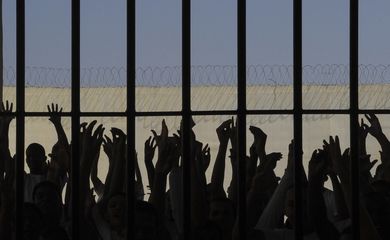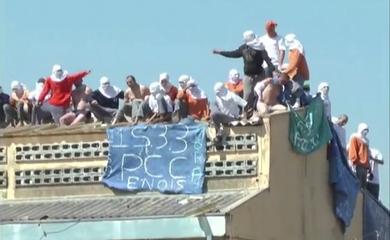Brazil criticizes UN report on country’s prison system


Dunlop said that “the report identifies challenges which Brazil already acknowledges and has sought to overcome.

Brazil’s Ambassador to the United Nations (UN) Regina Maria Cordeiro Dunlop expressed criticism over the report about the Brazilian prison system presented Wednesday (Sep 10) at a meeting with the UN Human Rights Council in Geneva, Switzerland.
Dunlop reiterated the country’s interest in the dialogue with the working group that visited Brazil, and said that “the report identifies challenges which Brazil already acknowledges and has sought to overcome.” Nonetheless, she went on to describe as unfounded and inaccurate the remarks about the judiciary branch, the treatment given to immigrants and minors in conflict with the law, the way the public attorney’s offices operate, and the duties assigned to such bodies as the Public Prosecution Office, the Federal Police, and the National Penitentiary Department.
She further condemned the comments about issues that were not analyzed during the UN’s visit in March last year, like the deprivation of liberty of physically or mentally disabled people. Dunlop also argued that “it is incorrect to affirm that the number of indigenous individuals in jail increased by 33 percent.” She quotes the Ministry of Justice as saying that “from 2010 to 2012, the rate escalated 13 percent,” accounting for merely 0.16 percent of the total number of people in jail. The remarks about how people of other groups are treated, like young African-Brazilians, was not mentioned by the diplomat.
Drafted by a UN working group after its visit to seven detention facilities in five Brazilian cities, the report cautions about the alarming amount of imprisoned people, which makes Brazil the fourth country in prison population. The study also highlights the concern over temporary detainees and their poor access to the services provided by the courts. The organization therefore recommended alternatives to the deprivation of liberty, which “has been used as a first resort rather than the last, as is required by international human rights standards.”
Apart from Brazil’s official statements, a contribution from the São Paulo-based NGO Conectas Human Rights, which holds consultative status with the UN, was also expected. Their participation was postponed until next Friday (12). In a note, Conectas opposed the position adopted by the Brazilian government, which “avoided the harsh criticism of experts over policies of mass imprisonment, and evaded referring to the need for urgent measures that can provide a solution to the violations observed.”
Conectas also partly responded to the disapproval showed by the Brazilian embassy, as regards the Anti-Drugs Law, the arrest of individuals for possession of narcotics, and mandatory rehabilitation, which Dunlop said is not common practice in the country. In the view of Conectas, Brazil “wasted the five minutes it had been given by addressing marginal matters, hushing up the specialists’ main conclusions.”
Translated by Fabrício Ferreira
Fonte: Brazil criticizes UN report on country’s prison system





